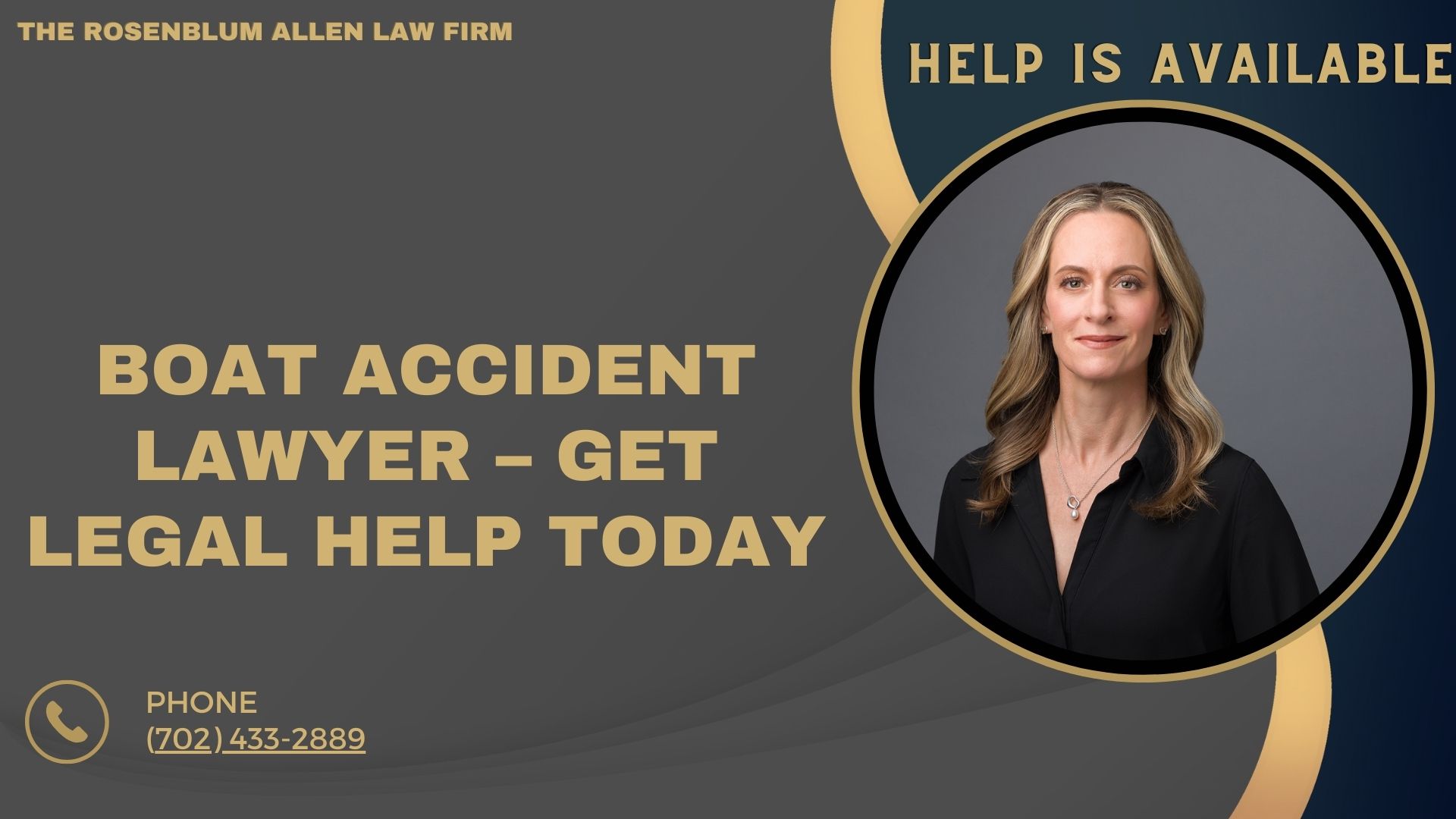Boating accidents can be devastating, leading to severe injuries, financial burdens, and legal complexities. Whether you were involved in a crash with another boat, injured due to operator negligence, or suffered from faulty equipment, navigating the legal process alone can be overwhelming.
A boat accident lawyer handles these cases, ensuring victims receive the compensation they deserve. If you’ve been injured in a boating accident, seeking legal representation can make a significant difference in the outcome of your case.
This guide will cover everything you need about boat accident lawyers, their role in personal injury claims, and how they can help you recover damages.
What a Boat Accident Lawyer Does
Role and Responsibilities of a Boat Accident Attorney
A boat accident lawyer is a legal professional who helps boating accident victims pursue compensation claims. Their primary responsibilities include:
- Investigating the accident to determine liability
- Gathering evidence such as witness statements, accident reports, and medical records
- Negotiating with insurance companies to secure fair settlements
- Filing lawsuits if necessary and representing clients in court
- Advising victims on their legal rights and options
How a Lawyer Can Help Victims of Boating Accidents
Hiring a boat accident attorney provides several key advantages:
| Benefit | Explanation |
|---|---|
| Legal Expertise | A lawyer understands maritime and personal injury laws that apply to boating accidents. |
| Evidence Collection | Attorneys gather crucial documents and proficient testimony to strengthen claims. |
| Negotiation Skills | Lawyers negotiate with insurers to prevent victims from settling for low offers. |
| Court Representation | If needed, an attorney can take your case to trial and fight for full compensation. |
| Peace of Mind | Legal professionals handle all legal complexities so victims can focus on recovery. |
Common Legal Strategies in Boat Accident Cases
Depending on the specifics of the accident, a lawyer may use different legal strategies, such as:
- Proving negligence on the part of the boat operator
- Establishing liability for defective equipment
- Demonstrating violations of boating laws and safety regulations
- Showing how a third party, such as a rental company, contributed to the accident
Common Causes of Boat Accidents
Operator Negligence
Negligent behavior is one of the most common causes of boat accidents. This includes:
Boating Under the Influence (BUI)
- Just like driving under the influence, boating under the influence is illegal and highly dangerous.
- Alcohol impairs judgment, reaction time, and coordination, increasing the risk of accidents.
Speeding and Reckless Boating
- Excessive speed reduces reaction time and increases the severity of crashes.
- Reckless maneuvers, such as sharp turns and weaving through crowded waterways, can lead to collisions.
Inexperienced or Unlicensed Operators
- Many accidents occur because boat operators lack proper training or licensing.
- Inexperience leads to poor decision-making in high-risk situations.
Equipment Failure
When a boat’s mechanical systems fail, accidents can occur due to loss of control or unexpected breakdowns.
Mechanical Defects and Malfunctions
- Engine failure, brake issues, or steering malfunctions can lead to dangerous situations.
- Manufacturing defects may make boat manufacturers liable for damages.
Failure to Maintain Safety Equipment
- Boats must be equipped with essential safety gear like life jackets, fire extinguishers, and distress signals.
- If safety equipment is missing or defective, the consequences of an accident can worsen.
Weather and Environmental Factors
Sudden changes in weather and environmental hazards can also lead to boating accidents.
Sudden Storms and Rough Waters
- Boaters should always check weather conditions before heading out.
- Unexpected storms can create dangerous waves and poor visibility.
Poor Visibility Conditions
- Fog, heavy rain, and nighttime navigation can lead to collisions.
- Proper lighting and navigation tools are essential for safe boating.
Collisions with Other Boats or Objects
Some boating accidents happen due to failure to follow navigational rules or crowded waterways.
Failure to Follow Navigational Rules
- Just like road traffic laws, waterways have rules that must be followed.
- Violating right-of-way rules can lead to severe accidents.
Crowded Waterways
- Busy marinas and popular boating areas increase the risk of crashes.
- Operators must be extra cautious in high-traffic zones.
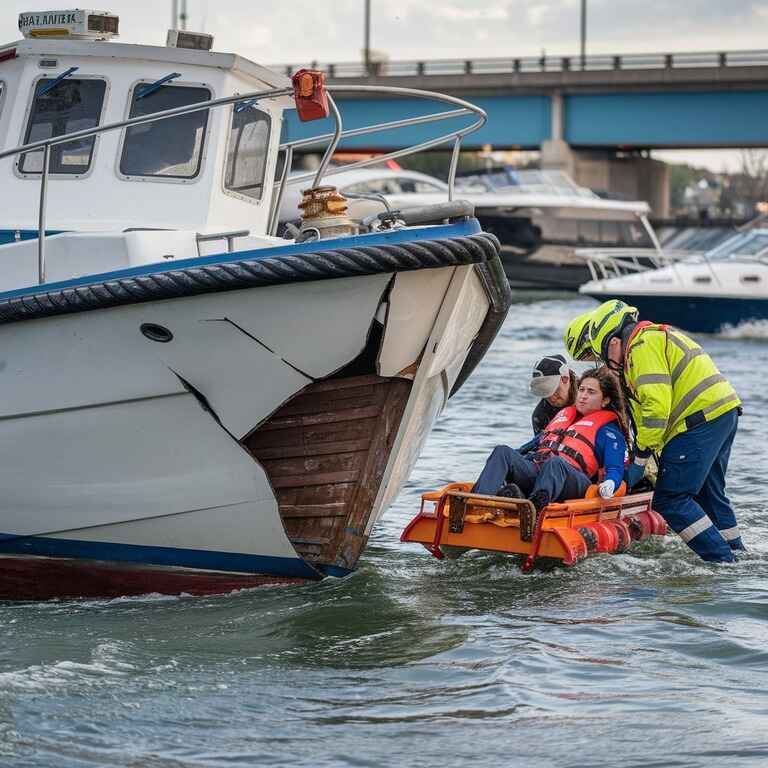
Types of Boat Accident Injuries
Boating accidents can lead to serious, life-changing injuries. Unlike car accidents, where victims can rely on seatbelts and airbags, boaters have little protection. Water, sharp objects, and exposed machinery make injuries more severe.
Traumatic Brain Injuries (TBI)
- A strong impact on the head can cause concussions or severe brain damage.
- Hitting the water at high speed can be as damaging as hitting concrete.
- Symptoms include headaches, dizziness, confusion, and memory loss.
Spinal Cord Injuries and Paralysis
- A fall, collision, or diving accident can damage the spine.
- Some victims experience partial or complete paralysis.
- Long-term medical care and rehabilitation may be needed.
Drowning and Near-Drowning Incidents
- If a person is knocked unconscious and falls overboard, drowning is a significant risk.
- Even if rescued, water inhalation can cause brain damage due to lack of oxygen.
- Life jackets save lives—every passenger should wear one.
Broken Bones and Fractures
- A hard fall or a collision can break ribs, arms, or legs.
- Slippery boat surfaces make falls more likely.
- Some fractures require surgery and months of recovery.
Burns and Explosions
- Boat fuel is highly flammable. Fires and explosions can cause severe burns.
- Electrical malfunctions and engine failures can trigger fires onboard.
- Chemical burns can also occur from fuel leaks or battery acid.
Soft Tissue Injuries
- Sprains, bruises, and muscle tears are common in boating accidents.
- Whiplash-like injuries can happen if the boat stops suddenly.
- These injuries may seem minor at first but can cause long-term pain.
Who Can Be Held Liable in a Boat Accident?
Boat accidents aren’t always straightforward. More than one party can be responsible. Identifying liability is key to getting compensation.
Boat Operator Liability
- They may be responsible if the driver was speeding, intoxicated, or careless.
- Operators must follow boating laws and keep passengers safe.
Boat Owner Liability
- Owners must keep their boats in safe working conditions.
- The owner can be held accountable if a ship has faulty equipment or lacks safety gear.
Boat Manufacturer Liability
- If a mechanical defect caused the accident, the manufacturer may be responsible.
- Examples include faulty engines, steering malfunctions, or defective fuel systems.
Rental Company Liability
- The rental company might be at fault if the accident involved a rented boat.
- They must provide safe boats and ensure renters are adequately informed.
Government or Marina Liability
- A government agency might be liable if poor waterway maintenance caused the accident.
- Dangerous docks, lack of warning signs, or missing navigation lights can contribute to accidents.
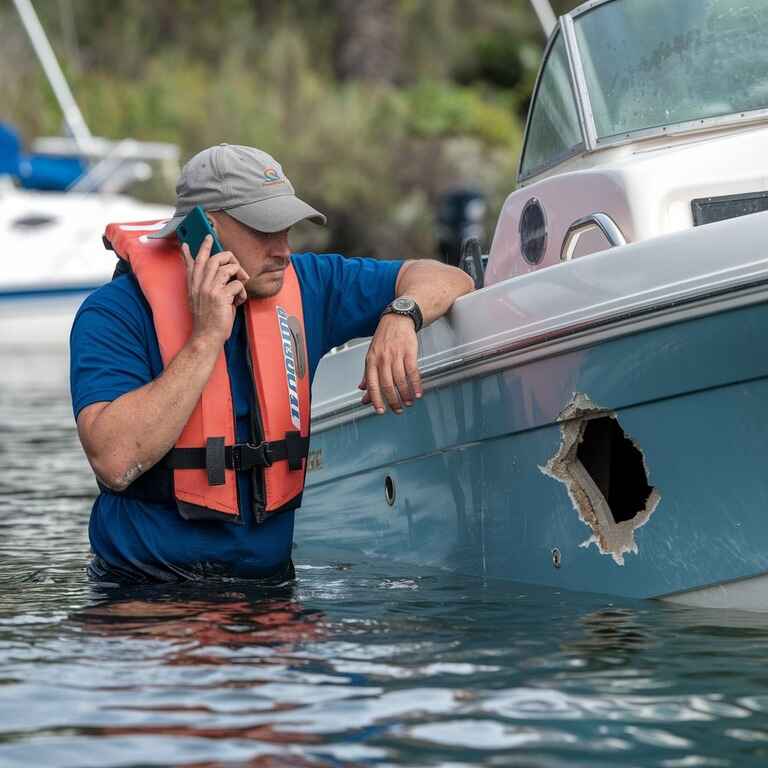
What to Do After a Boat Accident
A boating accident can be disorienting, but knowing what to do can protect your health and legal rights.
Ensure Safety and Seek Medical Attention
- Check yourself and others for injuries.
- Call for emergency medical assistance if needed.
- Even if you feel fine, get checked by a doctor. Some injuries take time to appear.
Report the Accident to the Proper Authorities
- Most states require boat accidents to be reported if there are injuries, fatalities, or severe property damage.
- Contact the U.S. Coast Guard, local law enforcement, or the appropriate agency.
- A formal accident report helps with insurance and legal claims.
Gather Evidence at the Scene
- Take photos and videos of the accident, injuries, and boat damage.
- Capture weather conditions and any visible hazards.
- Document any visible equipment failures.
Obtain Witness Statements
- If other boaters or passengers saw what happened, get their contact information.
- Their testimony can help prove who was at fault.
Contact a Boat Accident Lawyer
- An attorney can guide you through the legal process.
- They will protect your rights and handle negotiations with insurance companies.
- The sooner you contact a lawyer, the stronger your case will be.
Compensation Available in a Boat Accident Claim
If you’ve been injured in a boating accident, you may be entitled to compensation. The amount depends on the severity of your injuries and the impact on your life.
Medical Expenses
Boat accident injuries can lead to expensive medical bills. Compensation may cover:
| Type of Medical Expense | Description |
|---|---|
| Emergency Care | Ambulance transport, ER visits, life-saving procedures |
| Hospitalization | Surgeries, overnight stays, intensive care |
| Ongoing Treatment | Physical therapy, rehabilitation, specialist visits |
| Medications | Pain management, antibiotics, long-term prescriptions |
Lost Wages and Loss of Earning Capacity
- If your injuries prevent you from working, you may be compensated for lost wages.
- If you suffer a permanent disability, you could receive damages for loss of future earning potential.
Pain and Suffering Damages
Not all damages are financial. You may receive compensation for:
- Physical pain caused by injuries.
- Emotional distress such as anxiety, depression, or PTSD.
- Loss of enjoyment of life if you can no longer participate in activities you once loved.
Property Damage Recovery
If your boat, jet ski, or personal belongings were damaged in the accident, you may be entitled to compensation for repairs or replacements.
Punitive Damages in Extreme Negligence Cases
- The court may award punitive damages if the responsible party acted with gross negligence (such as operating a boat while extremely intoxicated).
- These damages punish reckless behavior and deter others from similar actions.
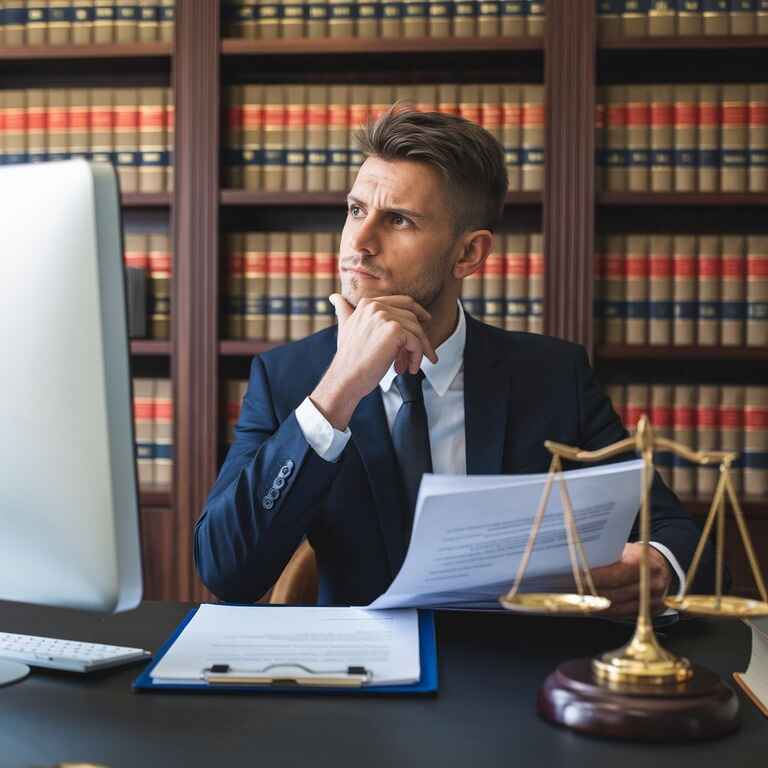
How a Boat Accident Lawyer Can Strengthen Your Case
Navigating a boat accident claim on your own can be overwhelming. A boat accident lawyer can significantly improve your chances of receiving fair compensation.
Investigating the Accident Thoroughly
A lawyer will:
- Gather police reports, medical records, and witness statements.
- Work with accident reconstruction specialists to determine how the crash happened.
- Collect photos, videos, and weather reports to build your case.
Gathering Crucial Evidence and Specialist Testimony
- If necessary, a lawyer can bring in specialists such as:
- Maritime safety specialists to explain boating laws.
- Medical professionals to describe the severity of injuries.
- Economic specialists to calculate future financial losses.
Negotiating with Insurance Companies
- Insurance companies often try to minimize payouts.
- A lawyer will handle negotiations and fight for a fair settlement.
- If the insurance company refuses to offer a fair amount, your lawyer can take the case to court.
Representing Clients in Court if Needed
- Your lawyer will prepare a strong legal case if a fair settlement isn’t reached.
- They will present evidence, cross-examine witnesses, and argue for maximum compensation.
Choosing the Right Boat Accident Lawyer
Not all personal injury lawyers have experience with boating accidents. Choosing the right attorney can make a huge difference in your case.
Experience Handling Boat Accident Cases
- Look for a lawyer with a proven track record in boating injury claims.
- Maritime and boating laws differ from car accident laws—your lawyer should be familiar with these complexities.
Knowledge of Maritime and Personal Injury Laws
- Some boating accidents involve federal maritime laws, while others are under state laws.
- A skilled attorney will understand which laws apply to your case.
Track Record of Successful Settlements and Verdicts
- Ask about past cases and results.
- A lawyer with successful settlements and jury verdicts shows they can fight for maximum compensation.
Client Testimonials and Reputation
- Read online reviews and testimonials.
- Look for a lawyer with a reputation for strong advocacy and client satisfaction.
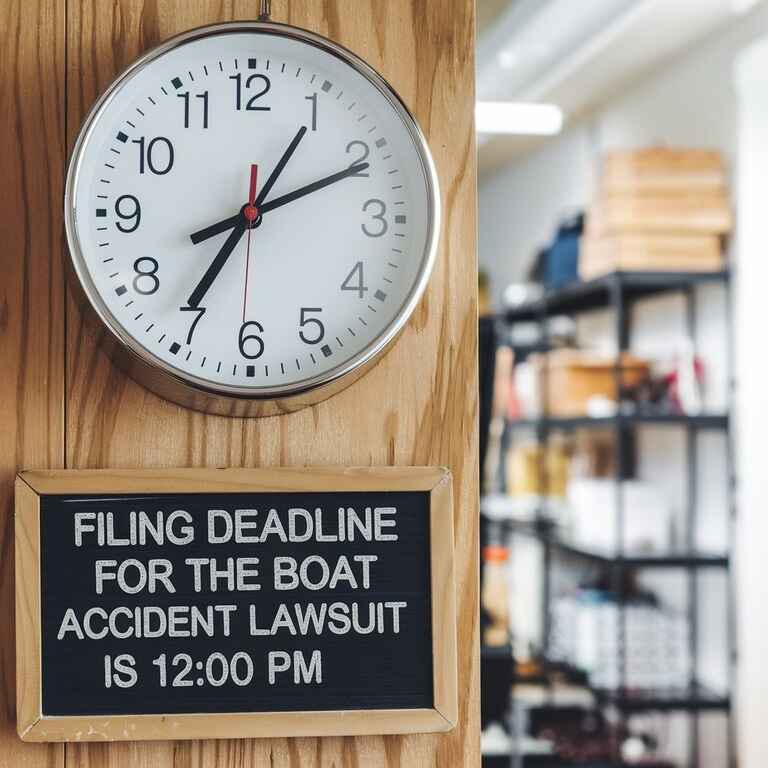
Time Limits for Filing a Boat Accident Lawsuit
Boat accident claims are subject to strict deadlines. Waiting too long could mean losing your right to compensation.
Statute of Limitations for Personal Injury Claims
- Most states have a 2-3 year deadline to file a personal injury lawsuit.
- If the case involves federal maritime law, the deadline may differ.
Exceptions and Special Circumstances
Some cases have exceptions:
- Claims against the government (for accidents in public waterways) often have shorter deadlines.
- If injuries are discovered later, you may still be eligible to file.
Importance of Taking Legal Action Promptly
- Waiting too long can weaken your case.
- Evidence disappears over time—witnesses forget details, and accident reports may become more challenging to obtain.
- Contacting a lawyer as soon as possible gives you the best chance of a successful claim.

Breaking It All Down
Boating accidents can leave victims with serious injuries, medical bills, and financial hardships. A boat accident lawyer can help you:
- Prove who was at fault
- Fight for full compensation
- Negotiate with insurance companies
- Take your case to court if necessary
The sooner you take action, the stronger your case will be. If you or a loved one has been injured in a boating accident, don’t wait—consult a lawyer today to protect your rights.

Frequently Asked Questions
What should I do if the boat operator refuses to report the accident?
If the boat operator refuses to report the accident, you should report it to the U.S. Coast Guard or local law enforcement. Having an official accident report is crucial for legal and insurance claims.
Can I still file a claim if I wasn't wearing a life jacket?
Yes, you can still file a claim. While life jackets are essential for safety, not wearing one does not eliminate your right to compensation. The key factor is whether someone else’s negligence caused the accident.
What if I was injured in a hit-and-run boat accident?
If the at-fault boater fled the scene, you can still pursue compensation. A lawyer can help track down the responsible party using:
- Surveillance footage from marinas or docks
- Witness statements
- Coast Guard or police investigations
Your insurance policy may cover your injuries and damages if the boater cannot be identified.
Are boat accident claims different from car accident claims?
Yes. While both involve personal injury law, boat accident claims often involve maritime laws, Coast Guard regulations, and waterway-specific rules. Boat insurance coverage also differs from auto insurance, making legal guidance essential.
Can I file a lawsuit if lousy weather caused the accident?
It depends. If the accident happened due to poor judgment by the boat operator—such as ignoring storm warnings or venturing into dangerous waters—you may still have a case. A lawyer can determine if negligence played a role.
What if my injury happened during a guided boat tour or cruise?
The company may be liable if you were injured on a guided boat tour, dinner cruise, or other commercial vessel. Businesses that operate boats have a legal duty to keep passengers safe, including:
- Ensuring the ship is well-maintained
- Providing proper safety equipment
- Training staff and guides on emergency procedures
Can multiple parties be held responsible for a boat accident?
Yes. In many cases, liability may be shared between multiple parties, including:
- The boat operator
- The boat owner
- Another boater
- A rental company
- A manufacturer (if faulty equipment contributed to the crash)
An attorney can help determine who should be held accountable in your case.
What happens if I was injured while working on a boat?
If you were injured while working on a boat, you may have a maritime injury claim under laws such as the Jones Act or Longshore and Harbor Workers’ Compensation Act (LHWCA). These laws provide special protections for maritime workers and allow them to seek compensation beyond standard workers’ compensation.
Can I still file a claim if I was partially at fault for the accident?
Yes. Many states follow comparative negligence laws, which means you can still recover compensation even if you were partially responsible. However, your final compensation may be reduced based on your level of fault. A lawyer can assess your case and explain how state laws apply.
What if the boat that caused the accident was uninsured?
You may still have options if the at-fault boat owner does not have insurance. Your lawyer can help explore:
- Filing a personal lawsuit against the responsible party
- Uninsured boater coverage (if your policy includes it)
Other sources of compensation, such as rental company liability

Additional Resources for You from The Rosenblum Allen Law Firm.
For those seeking additional legal resources or assistance related to criminal defense, here are some valuable links that may be of help:
Criminal Defense Attorney
If you’re facing criminal charges, it’s essential to have a skilled criminal defense attorney on your side. Learn more about how we can help defend your rights.Las Vegas DUI Lawyer
If you’re charged with a DUI in Las Vegas, our experienced DUI attorneys can guide you through the legal process and work toward a favorable outcome.Domestic Violence Lawyer Las Vegas
Facing accusations of domestic violence can be life-altering. Get the defense you need from a trusted domestic violence lawyer in Las Vegas.Drug Possession Lawyer
If you’re dealing with drug possession charges, our attorneys can help navigate the complex legal system to protect your rights.Sex Crimes Attorney
Being accused of a sex crime can carry severe consequences. Learn how a qualified sex crimes attorney can help you fight charges.CPS Defense Attorney
Facing charges related to child abuse or neglect? Our CPS defense attorneys provide the support you need in these critical cases.Misdemeanor Lawyer
If you’re facing a misdemeanor charge, our experienced lawyers can assist in building a strong defense to minimize consequences.Las Vegas Warrant Defense Attorney
If there’s a warrant for your arrest, it’s crucial to act quickly. Learn how our warrant defense attorneys can help you resolve the situation.Las Vegas Probation Violation Attorney
Violating probation can lead to serious consequences. Get in touch with a probation violation attorney to understand your options.Theft Crime Defense Lawyer
Accused of theft? A theft crime defense lawyer can assist you in protecting your rights and building a solid defense.Kidnapping Lawyers
Kidnapping charges are serious. If you’re facing such allegations, our attorneys are here to provide you with skilled defense representation.Juvenile Defense Lawyers
Juvenile charges require special attention. Our juvenile defense lawyers offer experienced representation to protect the futures of young individuals.Firearms Lawyer Las Vegas
If you’re facing charges related to firearms, a qualified lawyer can help protect your rights and navigate the legal complexities.
Feel free to reach out if you need assistance with any of these areas. We’re here to help.

Offsite Resources for You
Here are seven offsite resources that may be useful for readers looking for more information on boat accident laws, safety regulations, and legal rights:
U.S. Coast Guard Boating Safety – Provides official boating safety regulations, accident statistics, and safety recommendations.
National Safe Boating Council – Offers resources on boating safety, education, and accident prevention.
American Boating Association – Covers boating laws, safety tips, and insurance information for boat owners and passengers.
BoatUS – A leading resource for boating safety, insurance, and advocacy for recreational boaters.
United States Power Squadrons (America’s Boating Club) – Provides education and training on safe boating practices and navigation.
National Association of State Boating Law Administrators (NASBLA) – A nationwide resource for boating law enforcement and policy development.
FindLaw Boating Accidents – Offers legal insights and guides on what to do after a boating accident.

A Special Message from Our Lead Attorney, Molly Rosenblum Allen, Esq

Thank you for taking the time to explore these resources. I hope they’ve provided helpful information regarding your rights and the legal aspects of protesting in Nevada. If you have further questions or need legal assistance, don’t hesitate to reach out. My team and I at The Rosenblum Allen Law Firm are here to help. Call us at (702) 433-2889 to get the ball rolling on your situation.
We look forward to working with you.
– Molly

